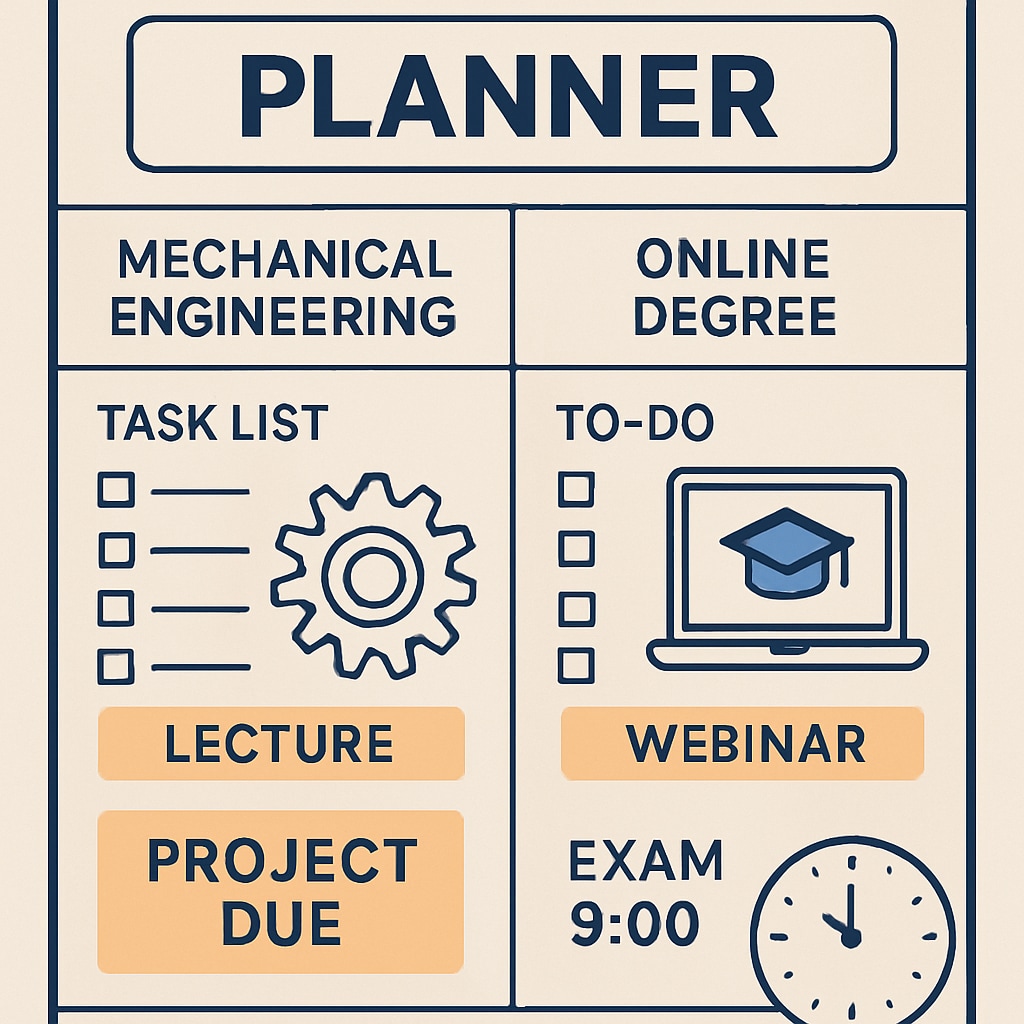Pursuing a mechanical engineering degree is a challenging yet rewarding endeavor that requires focus, dedication, and effective time management. With the rise of online education, many students now consider whether adding an online second degree to their academic portfolio could enhance their competitiveness and career opportunities. This article evaluates the advantages, potential drawbacks, and practical strategies for managing resources while pursuing dual degrees.

Advantages of Pursuing an Online Second Degree
Adding an online second degree can provide several benefits for mechanical engineering students. For example, it allows them to diversify their skill set, opening doors to interdisciplinary opportunities. A second degree in fields like business, computer science, or environmental studies can complement mechanical engineering knowledge and broaden career prospects.
Some key advantages include:
- Enhanced Marketability: Employers often value candidates with diverse qualifications and expertise across multiple domains.
- Flexible Learning: Online degrees offer the convenience of studying at one’s own pace, fitting seamlessly into a busy schedule.
- Network Expansion: Enrolling in a second program connects students to professionals and academics from other fields.
According to Britannica, online education has grown significantly, providing students with greater access to high-quality courses from top institutions globally. Leveraging this accessibility can be a strategic move for ambitious students.
Challenges and Considerations
Despite the potential benefits, pursuing dual degrees is not without challenges. Mechanical engineering programs are already demanding, requiring significant time and effort for coursework, projects, and internships. Adding an online degree increases the workload, potentially leading to stress or burnout.
Some challenges to consider include:
- Time Management: Balancing two degrees requires excellent organizational skills and discipline. Poor planning can lead to missed deadlines or reduced academic performance.
- Financial Investment: Online programs, while often more affordable than traditional degrees, still come with costs that must be weighed against future benefits.
- Quality Assurance: Not all online degrees are created equal. Students must research program accreditation and reputation to ensure their qualifications hold value in the job market.
As highlighted by Wikipedia, mastering time management techniques is essential for achieving success in multitasking academic pursuits.

Practical Strategies for Success
For students committed to pursuing an online second degree alongside mechanical engineering, adopting effective strategies is crucial. Here are practical tips to ensure smooth progression:
- Prioritize Goals: Define clear academic and career objectives to determine whether a second degree aligns with long-term aspirations.
- Create a Schedule: Use digital or physical planners to map out deadlines, study sessions, and personal time to maintain balance.
- Seek Support: Engage with academic advisors, mentors, or peers to help navigate challenges and access valuable resources.
- Start Small: Consider enrolling in one or two courses initially to gauge workload compatibility before committing fully to the second degree.
In addition, leveraging online tools and apps designed for productivity can assist students in staying organized and efficient.
Is It Worth Pursuing Both Degrees?
Ultimately, deciding whether to pursue an online second degree alongside a mechanical engineering program depends on individual circumstances. Students should carefully evaluate their interests, career objectives, and capacity to manage the additional workload. While a second degree can enhance competitiveness, it is not the only path to success. Certifications, internships, and extracurricular projects can also contribute to professional growth.
For those who are well-prepared and willing to invest the time and effort, pursuing dual degrees can be a transformative experience, setting the stage for a dynamic and versatile career.
Readability guidance: This article uses concise paragraphs, lists, and clear transitions to enhance readability. By strategically placing images and external links, it ensures a professional yet accessible format for readers.


